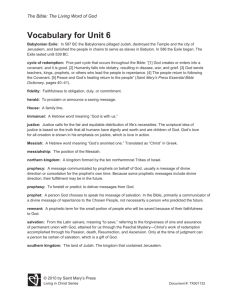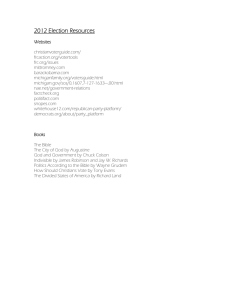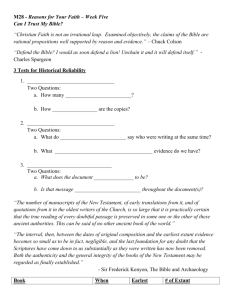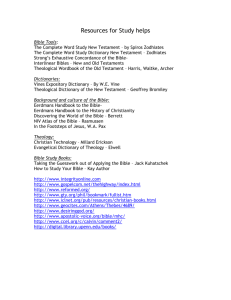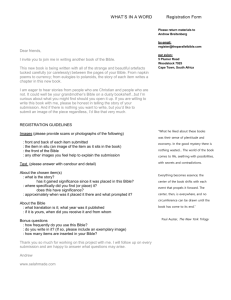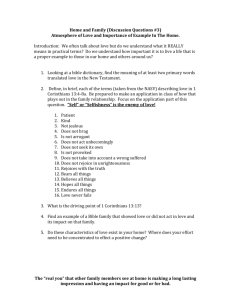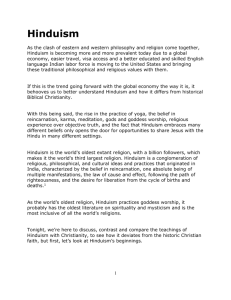Hinduism Study Guide
advertisement
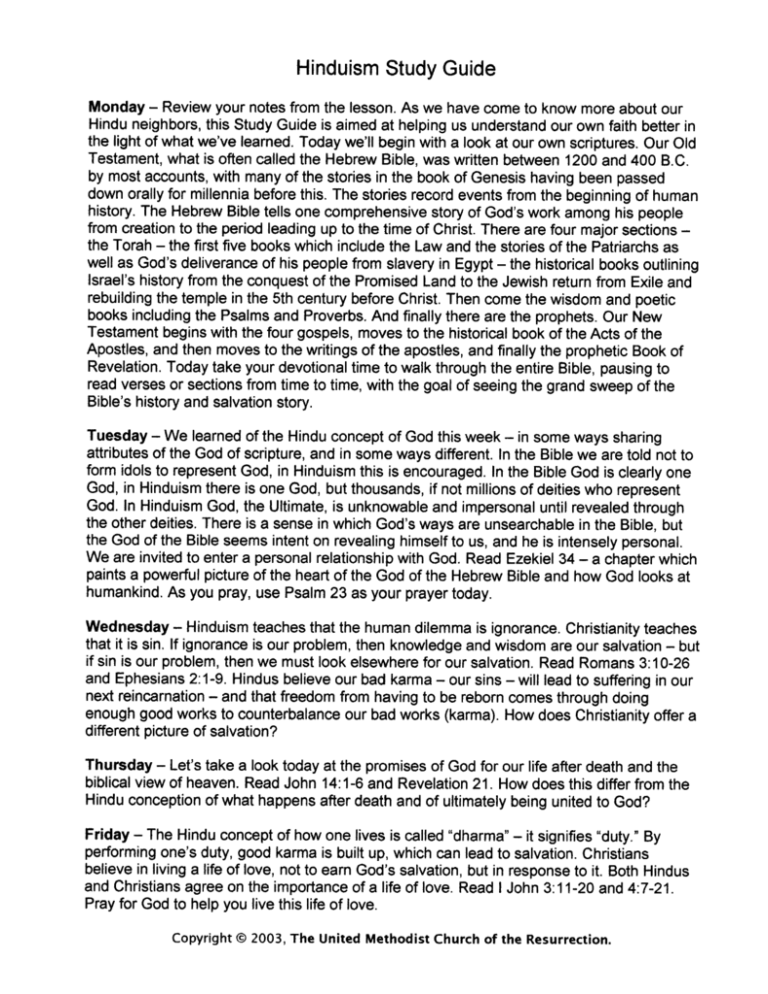
Hinduism Study Guide Monday - Review your notes from the lesson. As we have come to know more about our Hindu neighbors, this Study Guide is aimed at helping us understand our own faith better in the light of what we've learned. Today we'll begin with a look at our own scriptures. Our Old Testament, what is often called the Hebrew Bible, was written between 1200 and 400 B.C. by most accounts, with many of the stories in the book of Genesis having been passed down orally for millennia before this. The stories record events from the beginning of human history. The Hebrew Bible tells one comprehensive story of God's work among his people from creation to the period leading up to the time of Christ. There are four major sections the Torah - the first five books which include the Law and the stories of the Patriarchs as well as God's deliverance of his people from slavery in Egypt - the historical books outlining Israel's history from the conquest of the Promised Land to the Jewish return from Exile and rebuilding the temple in the 5th century before Christ. Then come the wisdom and poetic books including the Psalms and Proverbs. And finally there are the prophets. Our New Testament begins with the four gospels, moves to the historical book of the Acts of the Apostles, and then moves to the writings of the apostles, and finally the prophetic Book of Revelation. Today take your devotional time to walk through the entire Bible, pausing to read verses or sections from time to time, with the goal of seeing the grand sweep of the Bible's history and salvation story. Tuesday - We learned of the Hindu concept of God this week - in some ways sharing attributes of the God of scripture, and in some ways different. In the Bible we are told not to form idols to represent God, in Hinduism this is encouraged. In the Bible God is clearly one God, in Hinduism there is one God, but thousands, if not millions of deities who represent God. In Hinduism God, the Ultimate, is unknowable and impersonal until revealed through the other deities. There is a sense in which God's ways are unsearchable in the Bible, but the God of the Bible seems intent on revealing himself to us, and he is intensely personal. We are invited to enter a personal relationship with God. Read Ezekiel 34 - a chapter which paints a powerful picture of the heart of the God of the Hebrew Bible and how God looks at humankind. As you pray, use Psalm 23 as your prayer today. Wednesday - Hinduism teaches that the human dilemma is ignorance. Christianity teaches that it is sin. If ignorance is our problem, then knowledge and wisdom are our salvation - but if sin is our problem, then we must look elsewhere for our salvation. Read Romans 3:10-26 and Ephesians 2:1-9. Hindus believe our bad karma - our sins - will lead to suffering in our next reincarnation - and that freedom from having to be reborn comes through doing enough good works to counterbalance our bad works (karma). How does Christianity offer a different picture of salvation? Thursday - Let's take a look today at the promises of God for our life after death and the biblical view of heaven. Read John 14:1-6 and Revelation 21. How does this differ from the Hindu conception of what happens after death and of ultimately being united to God? Friday - The Hindu concept of how one lives is called "dharma" - it signifies "duty." By performing one's duty, good karma is built up, which can lead to salvation. Christians believe in living a life of love, not to earn God's salvation, but in response to it. Both Hindus and Christians agree on the importance of a life of love. Read I John 3:11-20 and 4:7-21. Pray for God to help you live this life of love. Copyright © 2003, The United Methodist Church of the Resurrection.




